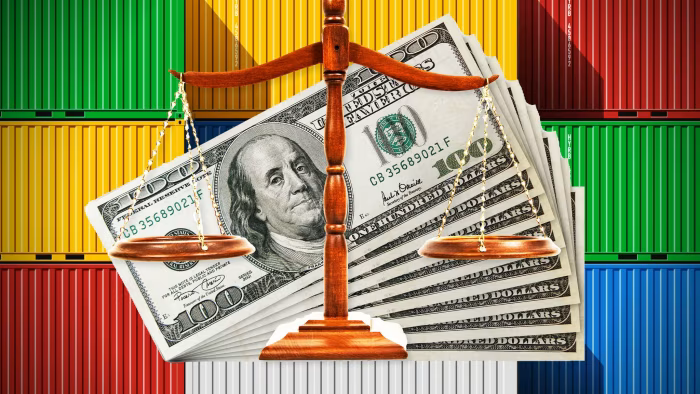
Washington lawyers and accountants are gearing up for a fee bonanza as companies prepare for tariffs, export controls and the possibility of trade wars under Donald Trump.
In his first term, Trump catapulted international trade policy from a dry economic backwater to one of the most prominent briefs in Washington as he hit US trading partners with large tariffs and pushed companies to reorganise global supply chains.
Four years later, people are ready for more of the same.
“I said to my colleagues — we’re bringing sexy back to trade,” said Nicole Bivens Collinson, managing principal at law firm Sandler, Travis & Rosenberg.
Bivens Collinson said the firm was looking at international expansion. “We are getting a lot of new clients, a lot of new people approaching us,” she said.
Trump won a sweeping electoral victory last month after campaigning on a pledge to apply levies of up to 20 per cent on all imports and 60 per cent on those from China. He has since threatened to hit Mexico and Canada with levies of 25 per cent.
In past weeks, Canada’s Prime Minister Justin Trudeau travelled to Trump’s Mar-a-Lago resort in Florida and Mexico’s President Claudia Sheinbaum spoke with Trump by phone. Across Washington, foreign diplomats have been plotting strategies to contain the mercurial president’s threats while businesses have sought to get fresh advisers.
“It’s been busy since 2016, but I can tell you already that overnight it’s exploded,” said one trade lawyer for a major firm, who did not want to be named. “There is a lot of interest in suing the Trump administration, everyone around town is preparing a lawsuit.”
The lawyer said the firm they worked for wanted to hire more people to deal with the Trump years, and that trade was becoming an increasingly attractive speciality.
Following Trump’s win, lawyers say companies are seeking help navigating the thicket of national security laws, tariff exemptions and product classifications that make the difference between a company escaping punitive levies or being taxed out of the lucrative US market.
Some companies are exploring ways to sidestep potential tariffs. Under the last Trump administration companies were offered a chance to apply to be “excluded” from having tariffs applied to their imports from China.
Between 2018 and December 2020, the Office of the US Trade Representative processed 53,000 requests from companies seeking to dodge tariffs on imported Chinese goods, although a review of the process found almost 90 per cent of those requests were denied.
Bivens Collinson said some companies are exploring “tariff engineering” by investigating whether they can reclassify their product to something that is subject to a lower tariff rate.
“You may have been classifying your product as a router for 25 years, but perhaps now it does a whole lot of other things too — is it even a router, or can we classify it as something else?”
Accounting firms have also been selling clients advice on how to navigate the new landscape. Those groups typically have advisers who can help companies deal with customs officials, and have been warning clients they should be ready to act quickly because backlogs built up when Trump introduced targeted tariffs in his first administration.
“The customs and trade teams are not the largest part of the firm, obviously, but this is an opportune time for those practices, including ours,” said Mark Ludwig, head of national trade advisory services at RSM US, the largest US accounting firm outside the Big Four.
RSM has pitched clients on using what Ludwig called “under appreciated” mechanisms for minimising tariffs. These include bonded warehouses, secure facilities where imports can be stored before triggering tariffs, or duty drawback programmes, through which tariffs can eventually be refunded if goods are subsequently exported.
“For most of my career, the average tariff rate was very low,” he said, but now experts in these mechanisms can help companies save much more substantial sums.
Companies are also focused on reorganising their supply chains to avoid incurring tariffs aimed at specific countries.
Steve Orava, partner in international trade at Washington law firm King & Spalding, said the firm’s practice focusing on domestic manufacturing has been in “high demand”. The firm is home to Trump’s nominee for US trade representative, Jamieson Greer. “We’re getting a lot of extra calls from all sorts of industries, companies and trade associations,” Orava said.
At Akin Gump, one of the largest legal and lobbying groups in Washington, Stephen Kho, a partner in international trade policy, said teams within the firm were “getting bigger” and expanding beyond just the rule of law.
“To service a client now you need not just lawyers, you need good political sense, politicians and former politicians and a flash of psychology,” Kho said. “I think it’s a much more complex practice and that means we need more people.”
Kho said that under Trump political instinct was more crucial than under President Joe Biden.
“The politicking part was so blatant under Trump, and it feels like it’s going to be even more so now.”


